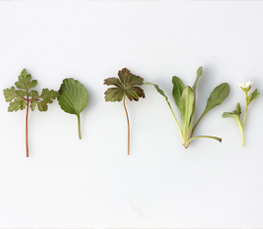Click on the link to read Part 1 & Part 2
Fennel (Foeniculum vulgare):
Assists digestion and increases metabolic processes in general; it alleviates gas, bloating and spasms and speeds up digestion. It dissolves and disperses mucus and fats. The lungs benefit from it when taken as a tea. Ideal for children for soothing an upset stomach and for colic. Do not overuse if experiencing hormonal imbalances as it is oestrogen rich and this may not suit all women.
Fenugreek (Trigonella foenum-graecum):
Is a useful healing spice; it is very nourishing and considered to be a tonic, as well as balancing blood sugar. It is a very useful thickening agent in foods. Three cups of fenugreek tea a day will help people gain weight. It will also calm an acidic or ulcerated stomach. It is often used alongside milkthislte tea for encouraging breast milk production and it strongly supports the pancreas.
Garlic (Allium sativum):
- Blood cleanser due to its sulphur content. (eight different sulphur compounds)
- It is capable of killing viruses, bacteria, and fungi. Combine it with ginger, French tarragon or marjoram to prevent gas.
- Use to make onion and horseradish elixir (as before) for colds and coughs.
- Excellent for cholesterol reductions.
- It is a major anti-oxidant proven to help reduce the incidence of disease. Garlic juice inhibits the growth of most types of bacteria. In fact, the odour alone does so.
- Garlic is nature’s own broad-spectrum antibiotic, but it works without killing off friendly bacteria, as drug antibiotics do.
- Positive for your heart, as it lowers blood pressure and reduces clots.
- Encourages white blood cell formation.
- Garlic protects the body from toxic chemicals, harmful food additives and rancid oils. (However, 1 percent of the population cannot tolerate it.)
Those who shy away from garlic because of its smell should add freshly grated ginger to it (provided you wash regularly, keep generally healthy and do not get constipated) the garlic odour will be minimized.
Ginger (Zingiber officinale):
Is one of the most versatile herbal stimulants. It is of great benefit to the intestines, circulation and stomach. Use as a tea for nausea. It enhances the effect of all other herbs and spices. Avoid use if you have very high blood pressure or in cases of extreme inflammation, dry skin or liver inflammation. Ideal for morning sickness for women or travel sickness for children.
Lemon (Origanum majorana):
It is not only delightful in flavour but also one of nature’s best kitchen healers. Gypsy lore says it is among the five foods that should always be in the kitchen. The fresh skins of whole organic ones can also be used. Rich in vitamin C, a natural anti-oxidant; it encourages the immune system. Suck on an organic lemon if you have swollen glands. Lemon is so powerfully acidic that it is rapidly converted to alkaline in the gut providing a powerful healing tool for detoxifying and healing. Great for supporting the liver.
Marjoram (Origanum majorana):
It is a powerful antiviral herb. It is also a stimulant, antispasmodic, antiseptic and carminative – a combination of opposites that bring balance. It relaxes the lungs and digestion and expels mucus wherever it may be situated. It can be used for cramps and nausea and adds a slightly lemony flavour to dishes.
Mustard (Brassica hirta, B, nigra and other species):
Is a stimulant, alterative and rubefacient (dilates the capillaries and increases blood flow) that is excellent for the digestive system. The best mustards are those made from whole grains and mixed with apple cider vinegar rather than malt or white wine vinegar. Add it frequently to salad dressings and when cooking rice and other grains. Use the seeds whole on steamed cabbage, carrots and parsnips to add crunch and spicy heat!
Nutmeg and Mace (Myristica fragrans):
Come from the same seed. Mace is the outer covering of the nutmeg. Nutmeg and lettuce soup is very good for depression and nervous disorders. Mace is an antiseptic and is delicious in sweet dishes. Sprinkle nutmeg and mace on cooked fruit, use with cinnamon in sweet dishes or grate onto potatoes, cabbage, onions or leeks. The effect is generally warming and soothing. Together they are supposed to be an aphrodisiac, but be aware that in large quantities they can be hallucinatory. Nutmeg encourages menstruation and can be abortive in large quantities – therefore avoid it during pregnancy.










